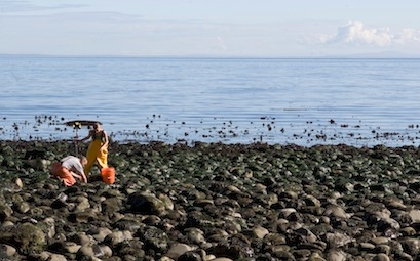Page 81 • (2,270 results in 0.038 seconds)
-
Worksheet #2 (Making Time for Scholarship) (pdf) view download
-
The life and work of Bjug Harstad (1848-1933)The Rev. Bjug Harstad, Pacific Lutheran University’s founder, was born on a small farm in Valle, Norway, on Dec. 17, 1848. The youngest son of 10 brothers and sisters, Bjug began working to support the family at a young age by herding cattle for neighboring farms — the beginnings of a lifelong work ethic. In the winter of 1860, Bjug’s parents made the decision to move the family to America. They set sail for Quebec by schooner, then made their way
-
be filled. To review all cases brought before it when a constitutional interpretation is necessary to resolve a bona fide dispute. To hold and exercise full power to decide what cases it will hear and make judgments on. To provide injunctive relief, if deemed necessary by the committee, to litigants pending decision of a case. To resolve by interpretation of the Faculty Constitution all issues approved for hearing by the committee. To communicate each decision in writing to the president of the
-
Spotlight on Recent Graduates Elle Sina Soerensen '20My name is Elle Sina – I am Sámi, born in Tromsø in Northern Norway. I mainly grew up in Norway, but I also lived in Vancouver a couple of times during my childhood as that is where my mom’s family lives. When I was thinking about university I wanted to go somewhere that would bring me closer to my Canadian family, which is why I ended up at PLU. My decision to attend PLU was a last-minute decision, but I am beyond grateful I chose to do so
-
involving physical interventions should be reviewed by the full HPRB at a convened meeting. See HPRB meeting schedule here. + Decisionally-impaired individualsDecisionally-impaired individuals are those who have a diminished capacity for decision-making and who may be unable to fully understand the risks of research. Research may involve decisionally-impaired individuals only if it offers a direct benefit to the individual participant or to the participant’s class or condition. If the participants are
-
own Wi-Fi enabled device and log in as a guest, or staff will log you into a computer that will provide access to library resources. Due to vendor licensing restrictions, we regret that access to library resources from off campus is not available to PLU alumni; ePass access expires upon graduation. An alumni library card does not include off campus access to library resources.Patron Behavior ExpectationsMortvedt Library patrons are responsible for their behavior at all times. We ask that Patrons
-

their smartphones, without having to download a separate app. Incentives, audio/visual inputs and live online chats for qualitative research can all be handled directly through the messaging app as well. And how do the costs, demographics, survey experience, and data collected compare with a more traditional online survey approach? Research conducted at Michigan State University, in collaboration with YouGov, using identical consumer electronics surveys administered on Facebook Messenger via
-

sustainability practices and overall principles. The hosts and guests explore design with the knowledge that it is so much more than just understanding visuals. Design is figuring out how a visual narrative works in print and digital mediums, how that functions, and the experience the consumer has with the design. In season one, the two would ask their guests whom they should interview next. To their surprise, each person they asked was eager to join them and from there the network of guests ballooned
-
Recycling Education Outreach Intern Posted by: nicolacs / March 14, 2022 March 14, 2022 The WM Recycle Corps collegiate intern program is a nine-week internship focused on the latest strategies in engaging residents and businesses in waste reduction and recycling behavior change. The internship is designed to provide a diverse group of responsible students with experience as recycling educators. This position provides an opportunity to work with communities across the Puget Sound. Primarily in
-

saltwater, investigating three closely related species of prickleback fish. The question they were trying to answer: If these fish live under the same rocks, why did they evolve into three distinct species? Nobody knows for sure. So the fieldwork continues, with Agoncillo and Youngquist taking inventory of the fish, and measuring their elevation and location. Some fish go back to campus to be dissected to determine feeding behavior. Rock-rolling included, as summer jobs go, this turns out to be a pretty
Do you have any feedback for us? If so, feel free to use our Feedback Form.


